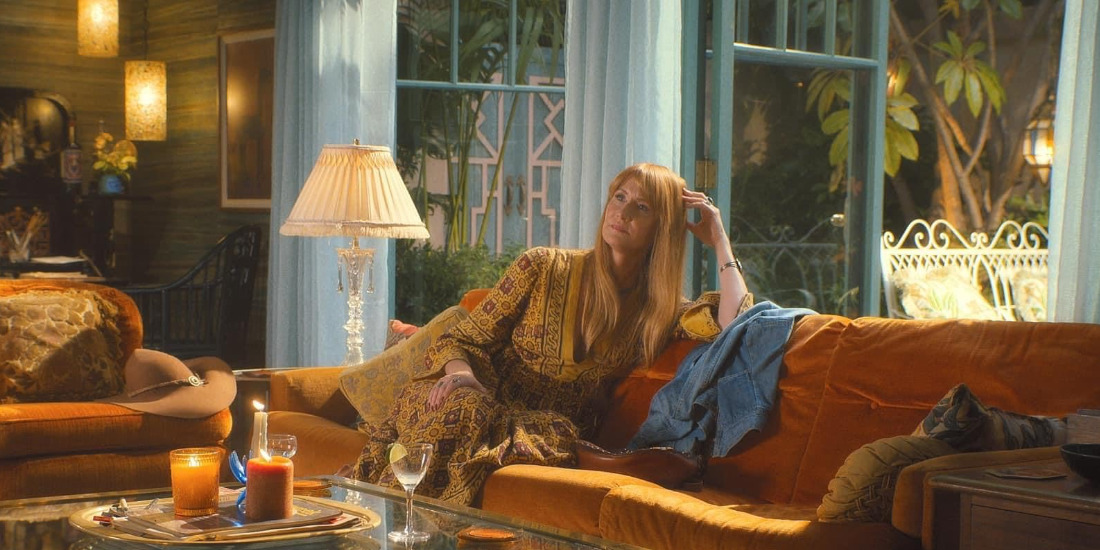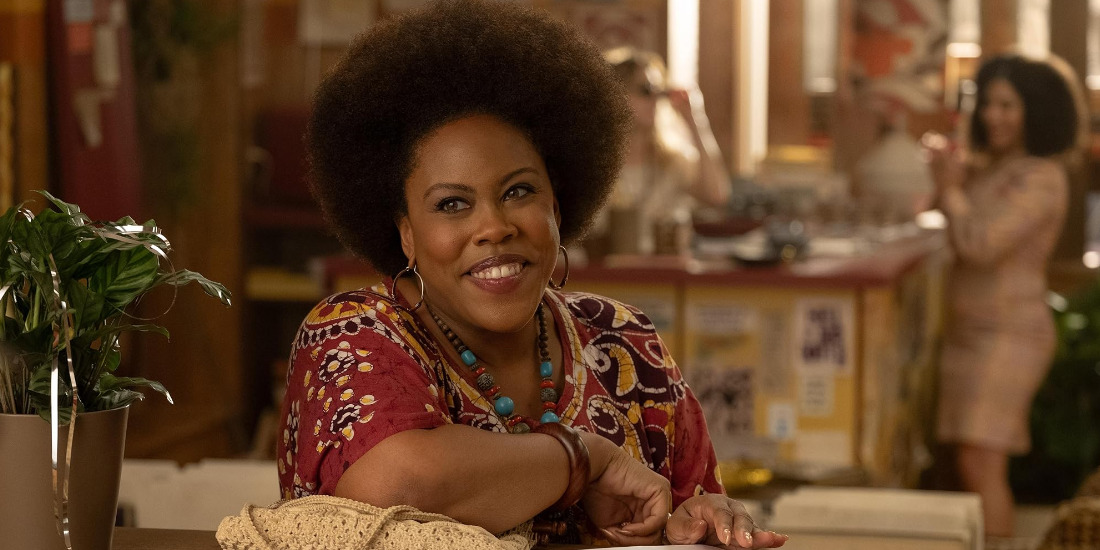While Maxine highlights the socialite storylines within ‘Palm Royale,’ which remain at the center of the Apple TV+ drama show’s narrative, Laura Dern’s Linda Shaw brings a different perspective to the story. Although Linda is relatively tangled up in the glitzy and glamorous drama of Palm Beach’s elite few, her steady presence in West Palm Beach allows the tale to retain further historical accuracy. Her character achieves the same by showcasing the relevancy of the feminist movement during the late 1960s. Therefore, Linda’s connection to the bookstore Our Bodies, Our Shelves— the meeting spot for the local activist group headed by Virginia and Linda, remains a significant touchstone for the story’s period setting. The same might lead viewers to wonder about the location’s relation to reality.
Our Bodies, Our Shelves: A Feminist Bookstore
The bookstore from ‘Palm Royale,’ Our Bodies, Our Shelves, is not modeled after any specific real-life bookshelf from contemporary times or the 1960s. However, the place is an evident reference to numerous similar establishments that existed around the era and well into the 90s before taking a more modernized shape through various other organizations. Feminist spaces were booming social practice as the 1960s were bleeding into the 70s.

During the 70s, the feminist movement was particularly interested in fostering and encouraging political conversations by recruiting others— especially women— into their cause. As such, given the relevance of socio-politically driven literature and other writing in any activism movement, feminist bookstores became a common hotspot for local activism groups. Considering the adjoining gay rights movement of the era, many such feminist literary establishments were also known to be queer-friendly. It wasn’t unheard of for queer women to own and run such places as well.
Therefore, the depiction of feminist bookstores through Our Bodies, Our Shelves in ‘Palm Royale’ seems to hark back to a relevant aspect of the late 60s/early 70s second-wave feminism. From the bookstore’s involvement in the local feminist group dubbed The Sisterhood to its position as a rare LGBTQ+ friendly space, the place retains a connection to kindred bookstores of the past.
Furthermore, the bookstore’s name itself also alludes to another noticeable reference to 60s/70s feminism as it seemingly pays homage to Roz Warren, author of ‘Our Bodies, Our Shelves: A Collection of Library Humor,’ a 2015 non-fiction collection of short stories about anecdotes from the public library.
The novel’s author, Warren, experienced the activist movement of the ’60s when she marched against the Vietnam War, another cause the ladies of Our Bodies, Our Shelves vehemently rallied behind in the show. Consequently, the bookstore certainly holds significance in informing the show’s relation to era-appropriate society. Nevertheless, as an individual establishment, the bookstore has no real-life counterpart behind it.
Read More: Is The Shiny Sheet a Real Palm Beach Newspaper? Is Ann Holiday An Actual Journalist?






